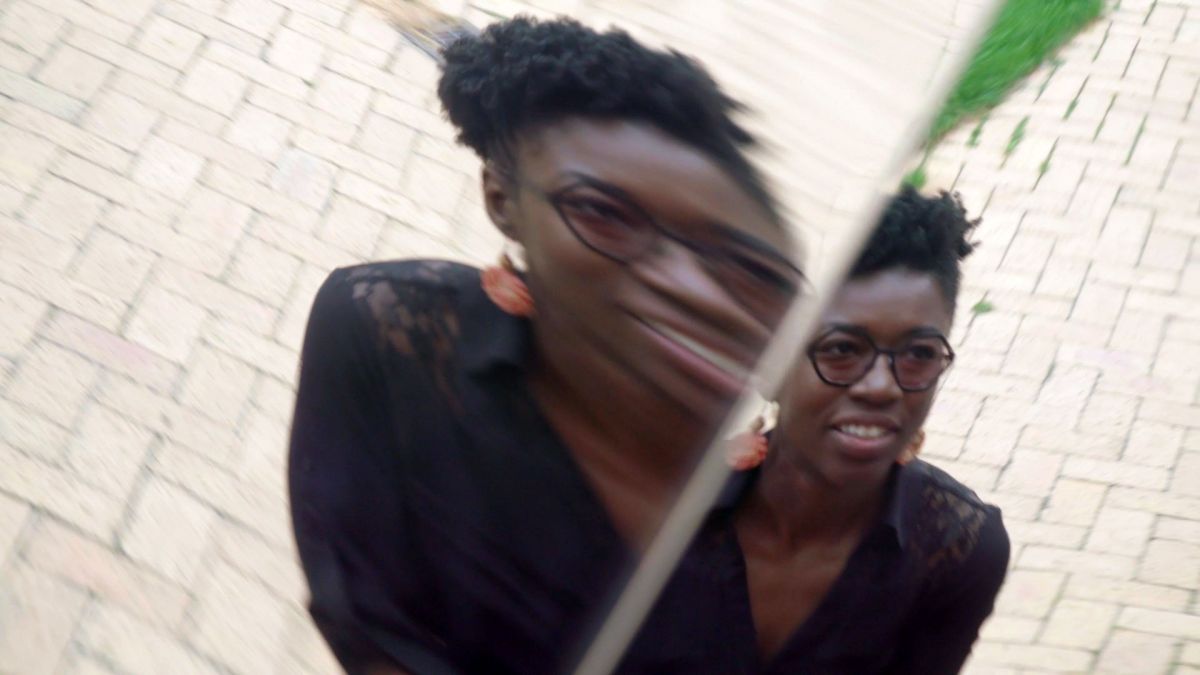Shalini Kantayya has directed visually eye-catching and memorable work for both National Geographic TV with Breakthrough, a series profiling trailblazing scientists transforming the future) and the documentary Catching the Sun, about the race for a clean energy future, a New York Times Critics’ Pick executive produced by Leonardo DiCaprio. For her second feature-length documentary, Coded Bias, Kantayya follows M.I.T. Media Lab computer scientist Joy Buolamwini, along with data scientists, mathematicians, and watchdog groups around the world, as they fight to expose the discrimination within facial recognition algorithms now prevalent across all spheres of daily life. The chilling film “moves deftly between pragmatic and larger political critiques,” wrote Devika Girish in the New York Times, “arguing that it’s not just that the tech is faulty; even if it were perfect, it would infringe dangerously on people’s liberties.”
And Kantayya does something not easy at all, impressive in fact: Making what could have been a depressing, hopeless and calculated tale and makes it not just accessible but with some hope, even.
“Coded Bias takes something huge and scary and breaks it down into small, easily understood morality tales, featuring everyday heroes fighting to save our future,” wrote Noel Murray in the L.A. Times. Adds Jenny Nuff in the Austin Chronicle, the film “is not interested in wallowing in despair for the future like many tech-infused documentaries like to do. Kantayya wants to inform and inspire change.”
As for how the film was inspired, Kantayya told WIRED magazine she stumbled upon the work of Buolamwini through a TED talk and read Cathy O’Neil’s book Weapons of Math Destruction, and just fell down a rabbit hole of the dark side of artificial intelligence.
“I couldn’t talk to people for two years at parties because I was so worried people would ask me about what I was working on,” she continued. “I think the working title at the time was Racist Robots, and it was really hard to explain. As someone who doesn’t have advanced degrees in data science, I had this fear of improperly explaining ideas like algorithms or artificial intelligence or machine learning. But I think what enabled me to get over my fear was just asking a lot of questions. And I came to see that artificial intelligence is going to transform every sector of society and touch every civil right we enjoy.
“I read this incredible body of research by women who help translate the subject matter. All of them are incredibly astute, some of the smartest people I’ve ever met. I think there are seven PhDs in the film. They have advanced degrees, but they also are women or people of color or LGBTQ or had some experience of being marginalized that allowed them to have this very unique perspective on technology. It allows them to see technology from the perspective of those for whom it could fail.” “Coded Bias explores this blurring of real and imagined A.I. and engages audiences with how A.I. is impacting our lives right now.”
The New York-based Kantayya is currently busy preparing to shoot a new documentary about the social media phenomenon TikTok, but we were able to connect with her to talk about her approach, the unsettling things she discovered along the way, and the sci-fi feel to the film. We’ve also added some video interviews with the filmmaker for even more context around the Coded Bias.
What led you to want to make Coded Bias and explore artificial intelligence?
I have a passion bordering on fanaticism for American science fiction movies. I was transfixed by films like Terry Gilliam’s Brazil, by Andrew Nichols’s Gattaca, and by cyberpunk movies like Blade Runner, which explored the ways science and new technologies might transform work and human relationships, creating a new vision of the future. Too often, artificial intelligence is seen as the stuff of distant, science-fiction futures.
Coded Bias explores this blurring of real and imagined A.I. and engages audiences with how A.I. is impacting our lives right now.
And was it a challenge to make the film in the style that you did? Inspired as you mention by science-fiction…
Translating the unseen hand of algorithms to the visual language of film was challenging. Coded Bias weaves personal stories, graphic elements, and lyricism to explore how bias gets encoded in the algorithms that decide the destinies of millions of people. As sci-fi writers have inspired the imagination of A.I. developers, Coded Bias draws from science-fiction stylistic elements to visualize concepts in this new era of big data.
This could’ve been an epic film, so many ways to go and to tell it. Did you have to cut out anything choice in order to shorten it?
There is enough material on the cutting room floor for a series on algorithms in health care, hiring, and prison sentencing. Tough decisions had to be made, leaving some beautiful material [to] hit the cutting room floor for the greater good.
What moment in your film especially stayed with you or impacted you the most?
I am moved every time I see a fourteen-year-old student in school uniform being frisked by police because he was wrongly identified as a suspect by facial recognition cameras.
What have reactions to the film been like so far? Anything especially surprising when people have talked about it with you?
When the film premiered at Sundance 2020, I was amazed that at every public screening, people asked why the mathematicians and scientists in my film are predominately women. Women are at the forefront of sounding the alarm about the dangers of bias in A.I. and I am proud that my film gives a platform to a canon of voices speaking out against the dangers of big tech.
What are your favorite/most influential documentaries or feature films?
Gattaca, Chungking Express, Blade Runner, Man on Wire.
More with Shalini Kantayya:
